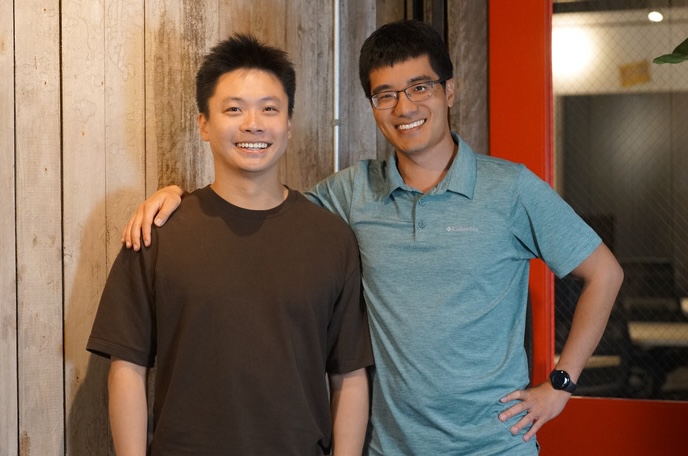Nuance Labs: Building Emotionally Intelligent AI in Seattle
In a landscape dominated by Silicon Valley startups, Nuance Labs stands out not just for its ambitious AI vision, but for its deliberate choice to build in Seattle. Founded by Edward Zhang and Fangchang Ma, two PhDs and former Apple engineers, this nascent startup has recently secured $10 million in funding led by Accel, with additional investments from Lightspeed and South Park Commons. What makes their story particularly intriguing is that despite the gravitational pull of San Francisco’s AI ecosystem, Nuance chose to plant its roots in the Pacific Northwest. The four-person team is developing an AI system capable of understanding and expressing emotion in real-time across multiple modalities – a bold technical bet that aims to make artificial intelligence less robotic and more genuinely human-like in its interactions.
When Nuance began its fundraising journey, the founders were fully prepared to relocate to San Francisco, widely regarded as the epicenter of AI innovation. However, their plans took an unexpected turn as they discovered that their most enthusiastic potential team members were predominantly based in Seattle. “As all of our conversations with candidates evolved, it just turned out that more and more people within our networks in Seattle were the ones who were most enthusiastic about joining this mission,” explained Edward Zhang, co-founder and CTO of Nuance. The two founders initially connected at Apple’s Seattle engineering office, where their shared vision began to take shape. Zhang, who earned his computer graphics PhD from the University of Washington, found a kindred spirit in Ma, who brought his robotics and machine learning expertise from MIT to Apple in 2019. Their experience in Seattle revealed what Ma describes as “a huge untapped talent pool for startups” in the city.
The founders cite Seattle’s more grounded atmosphere as another compelling reason for their decision to stay. They characterize the Bay Area as “indexing on the hype” in contrast to Seattle’s more down-to-earth approach to technology development. “There’s a natural difference between the two communities,” Zhang observed. “We definitely enjoy the one here quite a bit.” While acknowledging that San Francisco still offers stronger support structures for startups, Ma and Zhang are committed to contributing to Seattle’s growing entrepreneurial ecosystem. “We want to be the premier research lab in Seattle,” Ma stated with conviction. The company doesn’t completely dismiss the Bay Area’s advantages, however. They plan to establish a presence there as they grow, with Ma noting, “We do like the energy there.” Interestingly, despite basing themselves in Seattle, Nuance doesn’t have any local investors on its cap table – something Ma attributes to the high-risk nature of their technical approach, which he suggests isn’t typically in the portfolio of Seattle-based investors.
At its core, Nuance Labs is tackling what its founders see as a fundamental limitation in current AI systems: the inability to generate and understand genuine emotional presence, particularly in real-time interactions. “Our vision is to create emotionally intelligent conversational AI that feel as natural to engage with as a human,” the company declares on its website. Rather than simply predicting text sequences, Nuance’s technology aims to model subtle nuances of human behavior – a slight pause in speech, a subtle shift in facial expression – the micro-signals that make human communication rich and authentic. Their technical approach leverages auto-regressive transformers, a type of AI architecture that predicts the next step in a sequence based on what came before, effectively mimicking human behavior one frame or token at a time. This method enables both empathetic interpretation and authentic expression in interactive settings.
What distinguishes Nuance’s approach is its focus on efficiency and specialization. Instead of relying on generalized large language models (LLMs), their model is specifically designed to learn and predict emotion directly. This specialized approach allows for more economical training and faster performance – critical factors for a startup competing against tech giants with vastly greater resources. The potential applications span both consumer and enterprise domains: AI avatars capable of seeing and responding to users with appropriate emotional cues, software that analyzes emotions during video calls, and an “OpenAI for emotional intelligence” that provides APIs to support various use cases, including AI therapists. The founders envision creating tools that enhance human connection rather than merely automating conversations.
As Nuance Labs prepares to move into a new office in downtown Seattle, the team continues to grow with the addition of two accomplished researchers: Karren Yang, a former Apple AI/ML researcher with a PhD from MIT specializing in audio-visual synthesis, and Claudia Vanea, who brings her Oxford AI PhD and background in health AI after relocating from London. When asked how a small startup competes for top AI talent against tech giants offering enormous compensation packages, the founders point to their unique focus and agility. “The fundamental incentives and structures of large organizations just make it much harder to actually be able to build something big, but be able to move fast at the same time,” Zhang explained. In this view, Nuance Labs represents not just a bet on emotional intelligence in AI, but on Seattle’s capacity to nurture breakthrough innovation outside the Silicon Valley bubble – a nuanced approach to both artificial intelligence and startup geography that may well reshape both landscapes in the years to come.


